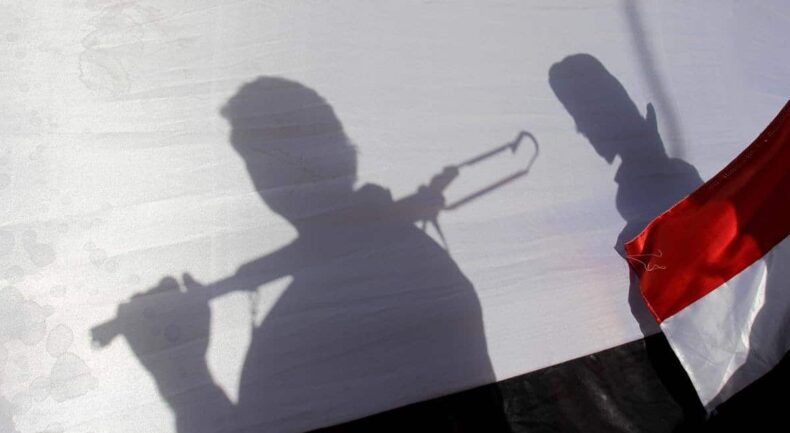As part of global efforts to end Yemen’s nine-year conflict, Saudi officials were in Yemen’s capital on Sunday for conversations with the Iran-backed Houthi rebels, according to officials.

According to the Houthi-run SABA news agency, a delegation from Saudi Arabia, led by the country’s ambassador to Yemen, Mohammed bin Saeed Al-Jaber, will speak with Mahdi al-Mashat, the head of the Houthi’s supreme political council, which governs the rebel-held regions of Yemen.
The agency reported, citing an unnamed source, that an Omani delegation, which reached Sanaa on Saturday, will also participate in the negotiations.
An effort to achieve a long lasting peace in Yemen
An official from Saudi Arabia and the Sultanate of Oman will talk about “ways to achieve a comprehensive and lasting peace in the region,” Houthi leader Mohammed al-Bukaiti announced on Twitter.
He emphasised the importance of maintaining peace and urged all parties to get ready to “turn the page of the past” if an honourable peace could be reached between Saudi Arabia and the Houthis. Saudi Arabia made no immediate comments. An inquiry for comment was not immediately answered by the UN office in Yemen.

The talks in Sanaa are a part of global initiatives to end Yemen’s conflict, which started in 2014. At that point, the internationally recognised government was overthrown and fled to the south before going into exile in Saudi Arabia. The Houthis then took control of Sanaa and a large portion of the country’s north.
Months after the Houthi action, a coalition led by Saudi Arabia intervened in an effort to reinstate the country’s internationally recognised government. In recent years, the conflict has developed into a regional proxy war between Iran and Saudi Arabia.
Last month, a draft agreement was reached between Saudi Arabia and the Houthis to extend a cease-fire that had ended in October. According to Saudi and Yemeni officials, the agreement aims to relaunch political negotiations in Yemen.
The officials discussed behind-closed-doors negotiations under the condition of anonymity.
They claimed that the Saudi and Houthi agreements call for a six-month ceasefire and an end to all military operations in Yemen. According to them, the Houthis have promised to sit down and negotiate a political solution to the conflict with other Yemeni parties. They added that the purpose of the UN is to facilitate political negotiations.
According to the officials, both parties also concurred to further relax the Saudi-led coalition’s restrictions on the airport in Sanaa and the Houthi-run Red Sea ports in Hodeida. According to them, the Houthis would end their long-standing blockade of Taiz, the third-largest city in Yemen and a stronghold of the government.

All state employees, including the armed forces, will receive payment from oil and gas revenues according to the phased roadmap. In exchange, the rebels agreed to resume oil exports from areas under government control after a months-long suspension due to Houthi attacks on oil facilities, according to the officials.
At a meeting with Prince Khalid bin Salman, the Kingdom’s defence minister, on Thursday in the Saudi capital of Riyadh, the internationally recognised presidential council of Yemen was briefed on the Saudi-Houthi agreements, a Yemeni official said.
Saudi-Iran accord to put an end to the conflict
The Oman-mediated negotiations aimed to stop both sides from resuming open combat. After Saudi Arabia and Iran came to an agreement to mend their seven-year diplomatic rift, the efforts gained steam in recent weeks. Iran, the primary foreign supporter of the Houthis, has claimed that a deal it made with Saudi Arabia would help put an end to the conflict in Yemen.

The Iranian-Saudi Arabian reconciliation has aided Saudi Arabia and Houthi negotiations, according to Ahmed Nagi, a Yemen expert at the International Crisis Group, a Brussels-based research firm, and both parties are nearing an announcement about the cease-renewal. fire’s
When discussed by Yemeni parties, he said, the second track of the Houthi-Saudi negotiations—a potential roadmap to end the conflict permanently—would pose a significant obstacle.
According to him, each party has its own interpretations and expectations. It is difficult to predict that this track will make progress anytime soon given the complexity of the situation.












